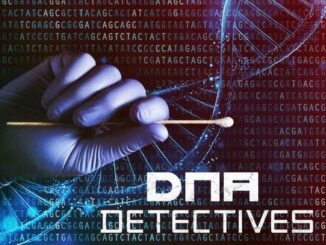
Everybody knows how old they are. But accurately predicting when you’ll die or if you’ll be stricken by disease is trickier. Those two big unknowns are retirement planning wild cards.
But science is changing that. DNA tests and other scientific advances give you a more accurate, hyper-personalized estimate of how long you’ll live. And they also tell you what level of care you might need late in life.
That very personal information from genetic testing can help people better plan for retirement.
Value Of A DNA Test In Retirement Planning
Science-based projections about your life span are more precise and useful than generic estimates. Planners often use average life spans reported by the government or Social Security calculators. But these are wild guesses that rely solely on your sex and date of birth. They only estimate how many years you can expect to live.
“There’s a powerful link between your genetics and longevity that can be used for financial planning purposes,” said Jay Olshansky, a University of Illinois at Chicago professor. He’s co-author of a yet-to-be published paper “Personalized Financial Planning Using Applied Genetics.”
“This is the next evolution in wealth management,” Olshanksy said. If, for example, a DNA test says you have a high probability of living to 90, it probably makes financial sense to delay retirement and continue to fund your nest egg. Similarly, if you learn that you have the gene that puts you at greater risk for Alzheimer’s disease, you’ll probably want to buy a long-term care policy immediately, Olshansky says.
Retirement Wildcard: How Long Will You Live?
We’re not talking about science fiction. The technology to predict human life spans is already here. And that’s bullish for retirement planning.
Genetic testing, for example, will let you know if you have the FOX03 gene, which is associated with longevity. Or it can give you a heads-up — like it did for actor Chris Hemsworth — if you have the APOE-e4 gene. That gene dramatically increases the risk of developing Alzheimer’s disease. Scientific advances also enable us to measure our so-called “true age,” which can be either younger or older than our biological age.
Adding those longevity-related data points to financial numbers can help you and your financial advisor make more informed decisions on key retirement planning questions: When can I retire? Should I take Social Security at 62 or 70? Does it make sense to get a long-term care policy or an annuity that pays an income for life? Do I need to save more, or should I spend my money now and enjoy life while I’m still healthy?
Other Ways To Turbo-Charge Your Retirement
10 Ways To Get Five More Years Out Of Your Cracked Retirement Nest Egg
AI Has A New Trick Up Its Sleeve — Planning Your Retirement
What You Should Know About Target-Date Funds For Retirement Savings
Life Span Is The Key To Retirement Planning
Retirement planning, after all, is all about longevity.
“Age is probably the single-most important number in the financial planning field these days,” said Moshe Arye Milevsky, a professor at York University in Toronto. Milevsky is author of “Longevity Insurance for a Biological Age: Why Your Retirement Plan Shouldn’t Be Based on the Number of Times You Circled the Sun.”
In practical terms, learning how old you are from a health and genetics perspective can often change the financial conversation the second the genetic testing results come in, says Milevsky.
Consider a retired woman who has yet to take Social Security. Her birth certificate says she’s 65. But the results of a genetic test say her true age is 57. Armed with this new genetic testing information, the woman’s financial advisor may change course on when she should take Social Security.
Milevsky says the conversation may go like this: “No, don’t take Social Security today, Mrs. Smith. You’re not really 65. You’re 57.”
Similarly, if a DNA test suggests that you’re older than your chronological age and you likely won’t live as long as the average person, it might not make sense to turn a lump sum of money into an annuity that locks in income for the rest of your life, Milevsky says. Enjoying the money sooner may be a better option.
Genetic Testing Is Now Part Of Retirement Planning
Going forward, Milevsky says, financial advisors must not only fill in client spreadsheets with financial data, such as the value of a home, 401(k) or pension, and projected Social Security income. They must key in genetic data, too.
“The spreadsheet is going to have to expand to include a new question: What’s your true age?,” Milevsky said. “And then that’s going to be used in the financial planning decision-making.”
Wealthspan Advisors is a financial advisory firm that has added aging science to its wealth planning calculations to give clients a more customized experience.
The Grand Rapids, Mich.-based firm has developed a software program that collects and utilizes science-based inputs, such as DNA test results from 23andMe (ME). These types of genetic tests provide information on health predispositions, such as Type 2 diabetes, lung and liver disease, various cancers and Alzheimer’s.
DNA Test And A Health Questionnaire
Wealthspan clients also fill out a health questionnaire. It gathers data on things like weight and body mass index, as well as the age a women reaches menopause. It asks about family history, including members who lived beyond 85. Test results focusing on blood sugar levels, blood pressure and cholesterol are also included.
The combination of the genetic testing and health questionnaires helps Wealthspan better pinpoint people’s health span, or the number of years they can expect to be healthy. But it also shows their “care span,” or the number of years they can expect some level of frailty, disability or need for a nursing home.
This client-specific data leads to more customized financial plans. The better information financial advisors have, the better retirement planning and life decisions that can be made. And that can create better outcomes.
“A lot of how long people live is baked into their genetics,” said Jeff Stukey, president and co-founder of Wealthspan Advisors. “An awful lot of people are worried about outliving their money. But we don’t know whether that’s an irrational fear or not unless we have a really good understanding about how long they’re likely to live. We’re not using a random age or a Social Security calculator or guessing. We’re basing it on science. And then we can build a financial plan based on that science.”
YOU MAY ALSO LIKE:
Four Stocks Turn $10,000 Into $50,000 In Four Months
Cathie Wood Gets Crushed By An Investment That Costs 73% Less
Learn How To Time The Market With IBD’s ETF Market Strategy
Find Today’s Best Growth Stocks To Watch With The IBD 50
Join IBD Live Each Morning For Stock Tips Before The Market Opens
The post When Is Your DNA Test Telling You To Retire? appeared first on Investor’s Business Daily.


